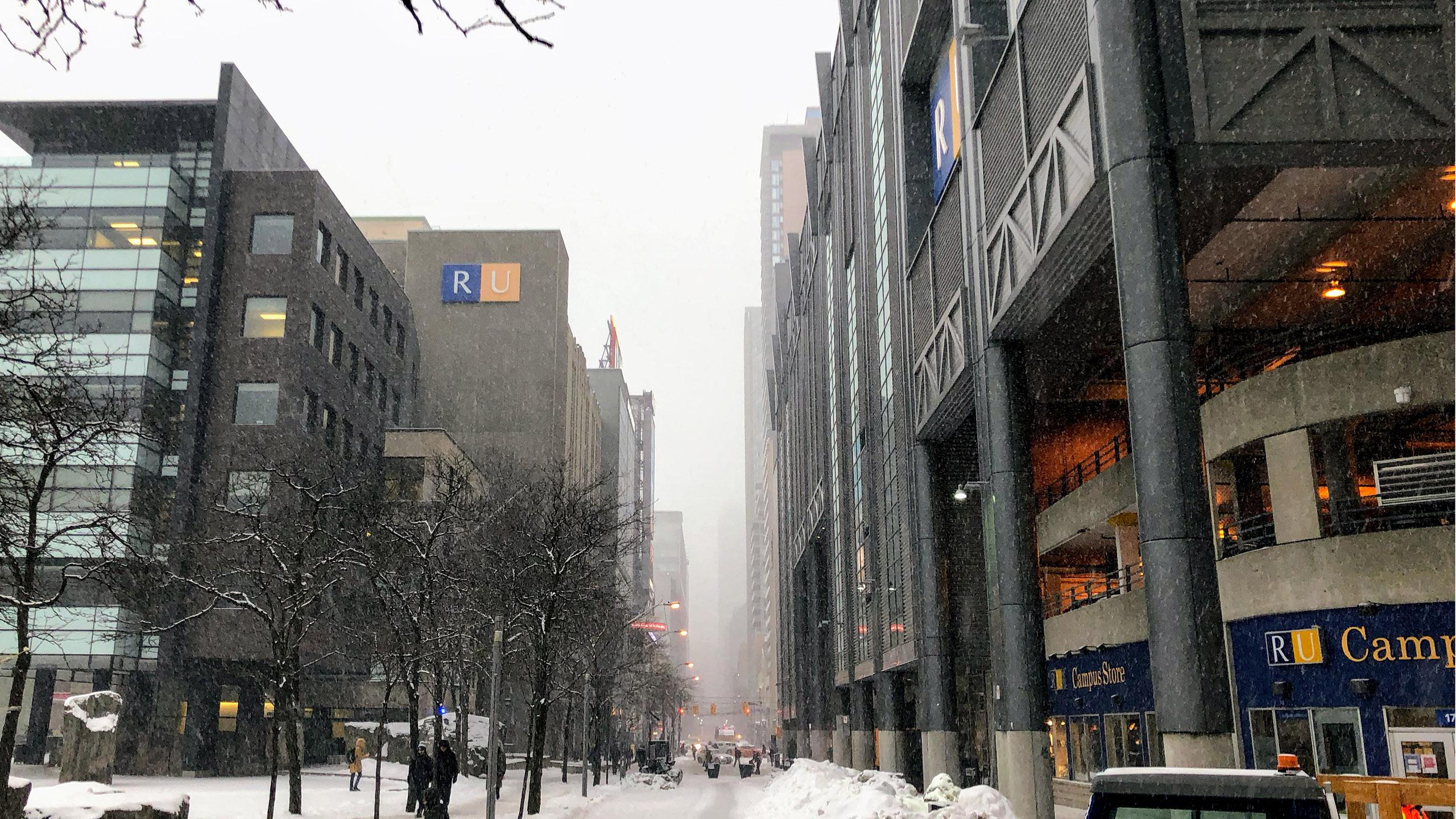By Yasmine Elkhouly and Alexandra Holyk
With the fall semester coming to an end, Ryerson students in and outside of residence are questioning whether to go home for the winter break during the pandemic.
According to an emailed statement from Ryerson president Mohamed Lachemi, residence buildings will be closed between Dec. 19 and Jan. 10 for the winter break. However, students who fill out an application and request to stay over the break will be housed in the International Living and Learning Centre (ILLC).
“We will continue to have support available through the pandemic hotline, resident advisors and professional staff on call,” Lachemi wrote.
According to Ryerson’s website, students who have COVID-19 symptoms or have been exposed to COVID-19 are required to inform housing and residence life using the pandemic hotline, which is monitored 24 hours a day and seven days a week. Students should also complete the Ministry of Health’s self-assessment to determine if they need to get tested.
When students return to residence in January, there will be a self-assessment procedure and two-week quarantine for international students.
Daisy McDermott, a second-year psychology student living in HOEM, plans on going home to The Bahamas this winter break.
“HOEM, my residence, is being so helpful during this stressful time,” McDermott said. “They have offered to pick me up from the airport and supply my two-week quarantine with everything I should need, including three meals a day,” she said.
Other students however, have decided to stay in Toronto for the break.
“Going home can be beneficial to mental health as it can help students feel closer and more connected to their families”
Fourth-year marketing student Xheni Shehu said she won’t be visiting her family in Montreal because of her worries around travelling during the pandemic.
“In terms of travel, I tend to overthink [whether] the people that are travelling beside me are as diligent when it comes to the COVID-19 precautions,” she said.
Shehu also highlighted her concerns with other people’s level of comfort on the train ride she would take to Montreal. “I don’t want to make others scared. Making sure you don’t sneeze or cough can be uncomfortable to do for five hours,” she said.
Timothy Sly, an occupational public health professor at Ryerson, said it may be a better choice for students to refrain from travelling during the break.
“If you’re considering travelling from a relatively ‘hot’ spot such as the GTA, to somewhere with light transmission, you may be the one who brings the virus to that community or your family,” Sly said.
Sly added that students who do travel should consider the safest methods of transportation for their situation, as well as the restrictions implemented in the city, province or country to which they are travelling.
Sarah Dermody, the director of clinical addictions research and equity at Ryerson, also noted that students should opt for ways to connect with their friends and family without travelling to see them in person. This could include chatting over Zoom and social media platforms. However, she said that students should consider their mental health as well when choosing whether or not to travel.
“In many ways, going home can be beneficial to mental health as it can help students feel closer and more connected to their families,” she said.
McDermott mentioned that she plans on taking extra precautions while travelling via plane. “I will be wearing a mask, wiping down seats with disinfectant wipes, always using hand sanitizer and washing my hands when I can,” she said.
“It’s Christmas and I’d just rather be with my family,” McDermott said.










Leave a Reply